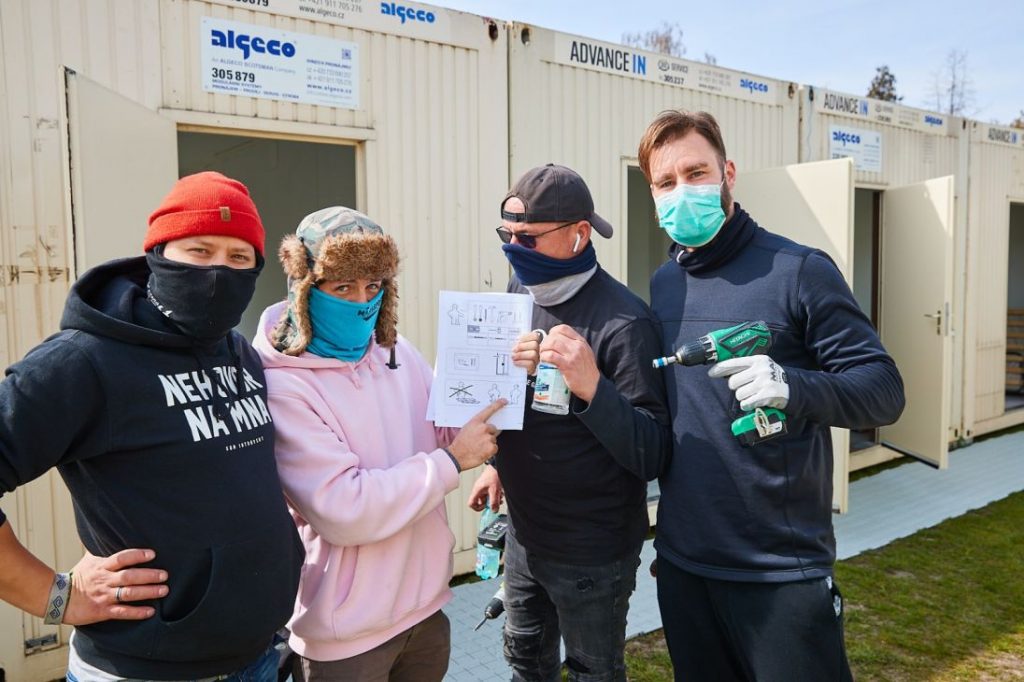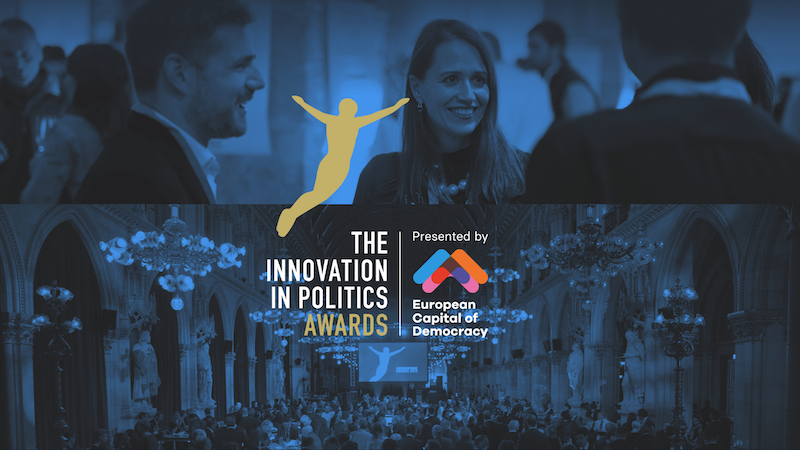With his project Home Quarantine without a Home, Matúš Vallo, Mayor of Bratislava and his team won the 2020 Innovation in Politics Award in the category Coping with Covid-19. We spoke with him about teamwork, discipline, and leadership in times of crisis.
How did the Quarantine Village come to life and what’s its status?
Matúš Vallo: In the first wave of the pandemic, we spent a lot of energy, weeks and months on end, trying to find accommodation for the homeless community. We were looking to rent a cheap hotel or other facility where they could stay longer than just during the two to three weeks of quarantine. But it was very difficult. Even though we would have been able to pay regular prices for the accommodations, nobody wanted to be part of this project. So we had to find a different solution fast. Ultimately, when the pressure started and a lot of people in homeless communities were diagnosed with Covid-19, we had the solution ready within three weeks.
Now, I am 100% sure that our Quarantine Village is well set-up and working fine, especially because the second wave of Covid-19 was much more severe than the first one and we were able to save many lives. So, up to now the project saved over 250 homeless people who needed isolation in quarantine. It felt like a war hospital sometimes. We were treating not only Covid, but all the problems homeless people, coming from the streets to a place like this, have.
What happens once a homeless person has to leave the Quarantine Village and is then released back into homelessness?
Matúš Vallo: With the Quarantine Village, we are not able to cure the problem of homelessness. We try to help people survive. This is the reality. Currently, we are doing everything we can to help them through this pandemic, and afterwards we will find long-term solutions.
Will the Quarantine Village be a part of these solutions?
Matúš Vallo: Yes. We will transform it to a more permanent residence for homeless people. And we will acquire additional facilities with more rooms. In the line of Housing First, we are collaborating with local NGOs to expand the project.
In Bratislava, homelessness has always been set aside. Nobody cares. You don’t win elections by spending money on the homeless. Many people are worried that when you spend money on marginalised groups, they miss out. But for me, this is a strong priority and everyone at city hall knows it: even if it is not popular, we are going to spend energy and money on people in need.
Quarantine Village is a successful example of a cooperation of NGOs, the public and private sector. Did you face any challenges in this cooperation? Which learnings can you pass on to other local leaders?
Matúš Vallo: We received a lot of support from private companies. IKEA gave us a lot of furniture, they had never done that before in this part of Europe. And many other big companies helped us with food and all the other necessities for the people who needed to stay in the Quarantine Village. We were lucky enough that we were able to increase the size of our village, so nobody had to stay on the streets. We could not have done it without the help of NGOs. But I hope this will never happen again. Actually, this is one of the many lessons of the crisis, a lesson that helped us deal with it: always prepare for the worst-case scenario. During this time, we were very close to the worst-case scenario.
Regarding the public-private partnerships, it is my experience as a mayor that when you open up the city and become more transparent – not only with regards to finances and procurement, but also on employment practices, what the mayor is doing, or the relationship between developers and the city – the private sector notices. And they know that the city has a good opportunity for them to show corporate social responsibility. We have hired a fantastic person who is responsible for dealing with the private sector and is the point of contact for companies who want to help the city. We are working a lot on being ready for private partnerships. There are so many environmental and social issues we have to tackle, so if a company supports us in doing so, we are also happy to communicate this openly.
How has your daily work changed during Covid and which long-term changes do you think will stay?
Matúš Vallo: I believe that we are going to emerge from this crisis as a much more self-confident city with a much stronger city hall. Of course, now we are working on keeping the good things and not the bad things. For example, we introduced a new system of cleaning the streets. And we introduced a 25% discount for the one-year tickets for our public transport – measures which we will keep. This is a lot of money, but we want to motivate people to use public transport more.
In terms of how the city hall works, I cannot imagine that I will go back to personal meetings. Everyone knows how to deal with digital meetings now, we know how to moderate them and how they work. I expect that I will do 50% of meetings in person and 50% digitally, because this is very convenient. Everybody is working more of course, as we don’t spend time travelling from office to office, we don’t spend time talking – even if I miss that – but now we always come straight to the point, which is good. We are emerging from this crisis with an understanding that nothing is guaranteed. That we need to be ready for everything.
Were there positive surprises as well during the crisis?
Matúš Vallo: Just recently we had a zoom call to thank all the Quarantine Village volunteers. I asked them, “Why did you decide to help in this very difficult time and put yourself in a potentially dangerous situation?“ They worked shifts of seven to eight hours a day in full protective gear. If you are not a professional nurse or doctor, this can be challenging. It was very nice to listen to them and to see that so many people from the general public are willing to help.
For me personally, the best thing was that I now know that I chose a good team. Because in a time of crisis you really see what kind of team you have. That is an old rule which always works, you know. In good times, you don’t always see what people are capable of. I have a fantastic team.
What are the qualities of a fantastic team?
Matúš Vallo: The most important thing is that I can count on these people and that I don’t need to know everything, I don’t need to control everything. I saw that these people are capable of finding comprehensive solutions and making tough decisions without me, which is very good. Therefore, I can save my energy for other things. We spent thousands of hours talking. Much more than before. Talking about everything from technical solutions to ethical dilemmas. When you have to sort out questions like that you really get to know each other. I think people who go through a crisis together have something in common for the rest of their lives. It is like an invisible bond.
In a global crisis like this pandemic, how do you make sure that the residents of your city and your team are standing behind you?
Matúš Vallo: It is all about leadership, right? There are many definitions of leadership and one of them is that you bring up ideas and can make people enthusiastic about these ideas. And in a crisis, this means that you come up with solutions and make people believe in these solutions. In our case, in Bratislava, the solution was discipline. That was it. To be disciplined, to follow the rules – wearing face masks, washing your hands, physical distancing … In the end, the numbers showed that the people of Bratislava can follow paths of discipline and that was something that I was trying to communicate. And of course, good communication skills are essential for politicians. Present your plan precisely and simply, with a clear start and a clear end. That’s it.
Has The Innovations in Politics Award impacted the project or your work in general?
Matúš Vallo: Of course, it has had an impact. It is very important for the Slovak public to have this Award. Because a large number of people from abroad, with no personal connection to the city or to me, think that we did a good job in helping homeless people with the Quarantine Village. This is incredibly important for us. So I am very grateful, and I will always be a fan of the Award, for my whole life.
The only thing we haven’t been able to do yet is our celebration dinner with the team. We are looking forward to having a proper party when it is safe again.



